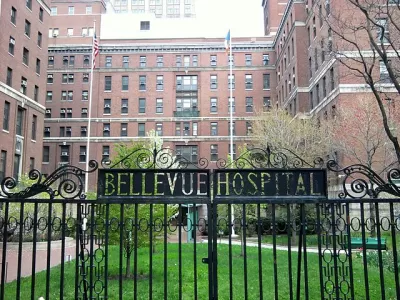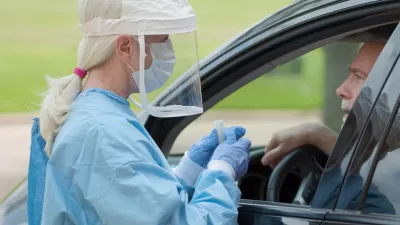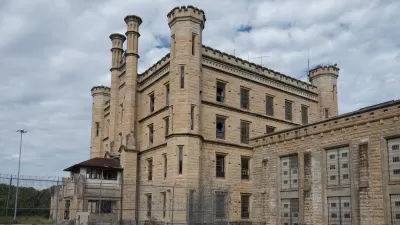For doctors trying to provide mental health care to people who are incarcerated or detained by the New York City Department of Corrections, city jails pose a challenge — and provide an opportunity.

The average jail or prison bears little resemblance to a therapist’s office, a community mental health clinic, an inpatient psychiatric facility, or any other therapeutic environment. Indeed, the restrictive and often chaotic jail or prison environment can exacerbate or even cause mental health problems for people inside. The use of solitary confinement is only the most extreme example. So how does a criminal justice system organized around security and punishment provide therapeutic care? Could there ever be room for privacy, tranquility, or other preconditions of emotional growth? As national problems of mental health care and criminal justice become more and more interwoven, these are not hypothetical questions.
Today, NYC Health and Hospitals operates one of the nation’s largest correctional health care services, including providing comprehensive mental health care to people in the criminal justice system from before they are arraigned to after their release from detention. NYC Health and Hospitals also administers inpatient psychiatric services at Bellevue and Elmhurst Hospitals and four borough court clinics. Dr. Elizabeth Ford is NYC Health and Hospitals’ Chief of Psychiatry for Correctional Health Services (CHS). She spent 15 years working in Bellevue Hospital’s inpatient psychiatric unit for men held at Rikers Island, beginning as a psychiatric intern and becoming director of the program. In 2014, satisfied with the changes to patient care implemented at the hospital, and concerned with the state of care in the jails themselves, Dr. Ford went to work at Rikers. From her office there, where the window is reinforced with double barbed wire and the sound of planes taking off from La Guardia Airport regularly intervenes, she talked to UO. Ford spoke about the challenges of treating mental health patients in a punitive environment, to the changes CHS has been bringing to spaces of confinement and treatment on Rikers Island, and the kind of mental health system that could serve New Yorkers better, both in and out of the criminal justice system.
FULL STORY: Where Care Meets Confinement

Alabama: Trump Terminates Settlements for Black Communities Harmed By Raw Sewage
Trump deemed the landmark civil rights agreement “illegal DEI and environmental justice policy.”

Study: Maui’s Plan to Convert Vacation Rentals to Long-Term Housing Could Cause Nearly $1 Billion Economic Loss
The plan would reduce visitor accommodation by 25% resulting in 1,900 jobs lost.

Planetizen Federal Action Tracker
A weekly monitor of how Trump’s orders and actions are impacting planners and planning in America.

Grand Rapids Mayor Proposes Garage Conversion Plan
The mayor says allowing homeowners to convert garages to dwelling units could alleviate the city’s housing shortage.

Baltimore Ordered to Improve Sidewalk Accessibility
The city is one of many to face lawsuits for failing to comply with the Americans with Disabilities Act.

This Toronto Suburb Has More Bus Riders Than Columbus, Ohio
Brampton, Ontario used gradual improvements in service to prove that if you build it, they will ride.
Urban Design for Planners 1: Software Tools
This six-course series explores essential urban design concepts using open source software and equips planners with the tools they need to participate fully in the urban design process.
Planning for Universal Design
Learn the tools for implementing Universal Design in planning regulations.
Smith Gee Studio
Alamo Area Metropolitan Planning Organization
City of Santa Clarita
Institute for Housing and Urban Development Studies (IHS)
City of Grandview
Harvard GSD Executive Education
Toledo-Lucas County Plan Commissions
Salt Lake City
NYU Wagner Graduate School of Public Service




























